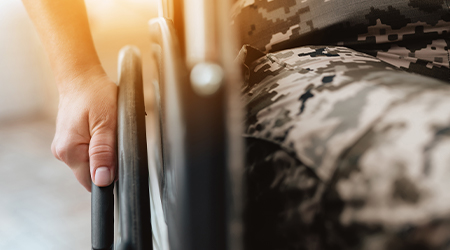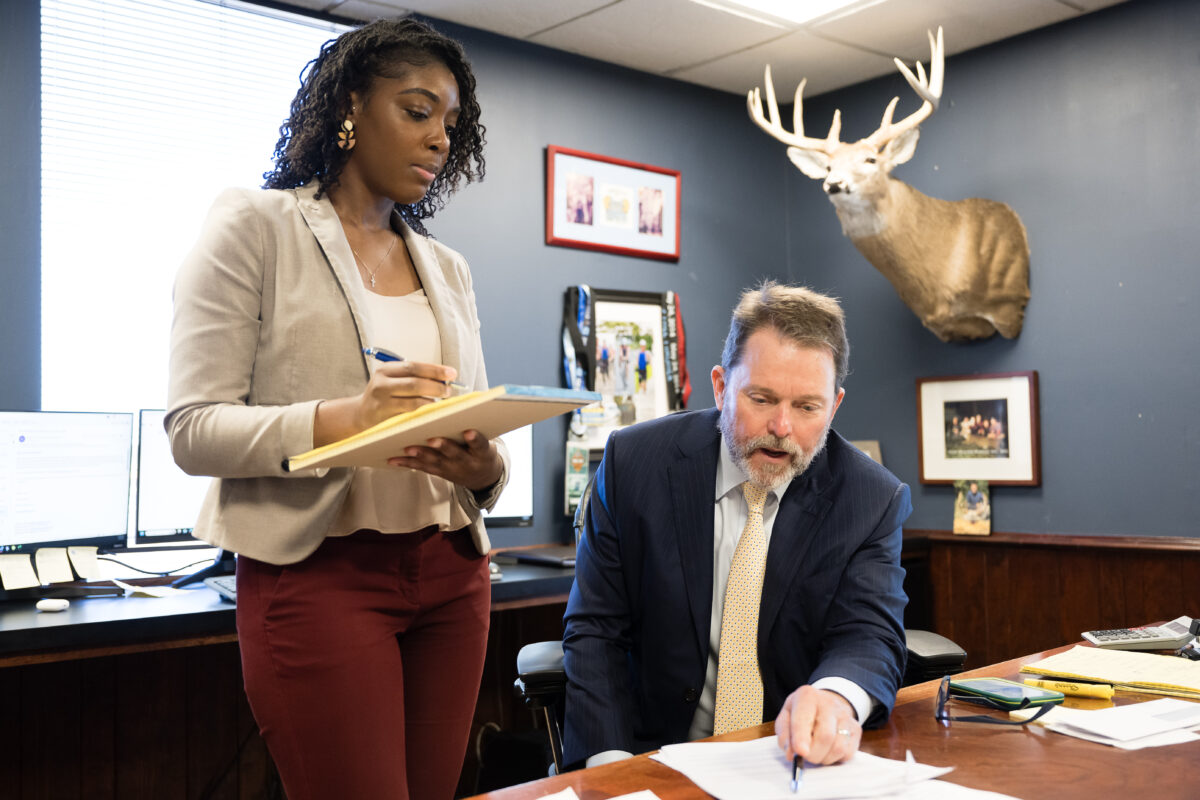
Do you believe you need a VA disability lawyer? Veterans of the U.S. Army, Air Force, Navy, Marines, and Coast Guard who suffer injuries or acquire diseases related to active duty may receive tax-free disability compensation from the Department of Veterans Affairs. You also may be eligible for disability benefits if your military service made an existing disease or injury worse. Some veterans who fought during war times can claim benefits even if their disability isn’t service-related.
To be eligible for VA disability benefits, veterans must meet certain criteria that confirm their service and the nature of their discharge. The length of service required can vary depending on when and where you served, but typically, there is an expectation of active-duty service for a minimum duration set by the VA. Furthermore, the connection between service and disability must be established, meaning that the injury or disease was incurred or aggravated during active military service.
An experienced attorney can help you obtain the benefits you deserve as a result of your military service. The bureaucratic maze may involve several rounds of appeals and extensive documentation to back up your claim. Let an attorney deal with the often time-consuming and frustrating process of securing the VA disability benefits you deserve.
Get Help from South Carolina Veterans Disability Lawyers
If you’re disabled and have been denied appropriate benefits from the VA, call Joye Law Firm or fill out our online case evaluation form.
Joye Law Firm has offices in Charleston, North Charleston, Columbia, Myrtle Beach, Summerville, and Clinton, but a veterans disability attorney is ready to take care of your case anywhere in South Carolina.
This includes but is not limited to:
- Lowcountry: Charleston, Berkeley, Dorchester, Colleton, Beaufort, Jasper, Hampton, Allendale, Bamberg, Orangeburg, and Calhoun counties.
- Midlands: Barnwell, Aiken, Edgefield, Lexington, Saluda, Richland, Kershaw, Fairfield, Newberry, Lancaster, Chester, and York counties.
- Upstate: Cherokee, Spartanburg, Greenville, Union, Laurens, Abbeville, Greenwood, McCormick, Anderson, Oconee, and Pickens counties.
- Pee Dee: Chesterfield, Clarendon, Darlington, Dillon, Florence, Georgetown, Horry, Lee, Marion, Marlboro, and Williamsburg counties.
- Grand Strand: Horry and Georgetown counties.
About South Carolina Veterans Disability Benefits
If you or a loved one has a service-related disability or is unable to work due to a service-related injury or disease, it’s important to understand your options and legal rights.
You may be eligible for veterans disability compensation if you have a service-related disability and you were discharged under terms other than dishonorable conditions. The amount of basic benefits depends on the extent of your disability. The VA assesses your disability on a scale of 0 to 100. A higher rating results in a larger benefits check. You could be entitled to more benefits if you have very severe disabilities or loss of a limb; if you have a spouse, child, or dependent parent; or if you have a seriously disabled spouse.
There are two basic types of compensation for disabled veterans:
- Disability Compensation: Veterans who have disabling injuries or physical or mental conditions that were caused by military service or were aggravated by active duty may qualify for disability compensation. Combat experience is not required to receive disability compensation. You may receive veterans disability benefits even if you are able to hold a job. In fact, many veterans on VA disability still work. There is no cap on your income to qualify for veterans’ disability compensation. Only if you have a high disability rating based in part on your unemployability would there be a problem with working.
In addition to direct compensation, eligible veterans can also access the comprehensive Veterans Affairs healthcare system dedicated to ongoing medical care. This system provides a wide range of services, including preventative care, treatments for acute and chronic conditions, inpatient and outpatient services, and mental health care. Veterans who qualify for VA healthcare can receive care at any VA medical center or outpatient clinic, with costs that are often significantly lower than private healthcare. - Non-Service-Connected Pension: Veterans who were severely disabled after their military service and who now have low incomes may qualify for a non-service-connected pension. If you served during a period of war and meet these conditions, benefits may be available to you.
Beyond individual disability benefits, the VA also recognizes the impact a veteran’s service-related disability can have on their family. As a result, additional allowances are available for dependents of disabled veterans, including spouses, children, and in some cases, parents. These benefits are designed to provide supplemental financial support to help cover the increased living expenses that can come with caring for a disabled veteran.
It is possible for a veteran to recover benefits under both programs if they meet the eligibility requirements for both.
One of the most difficult aspects of a veteran’s disability claim is establishing that the disability is related to an injury or illness that is connected to military service. There are some conditions that are presumed to be service-related for VA disability purposes. For example, Vietnam veterans who suffer from the effects of Agent Orange are presumed to have a service-related disability. There is also a presumption of service connection for Gulf War veterans who have an undiagnosed illness often called Gulf War syndrome.




